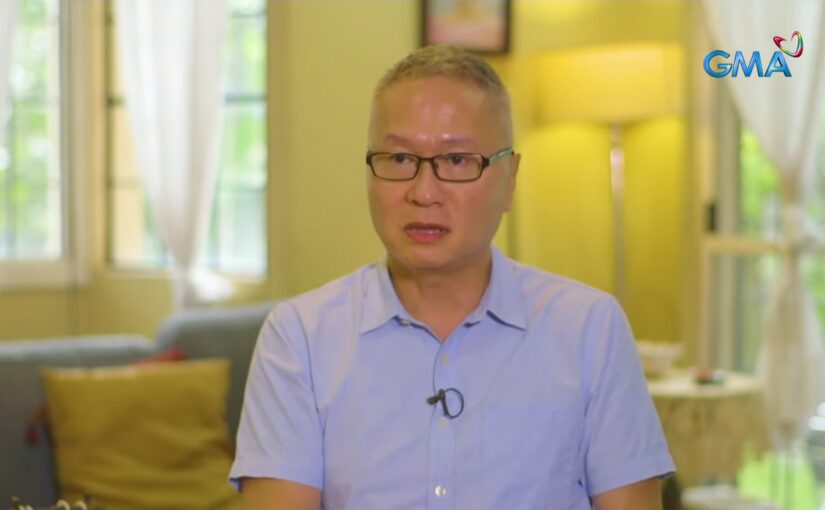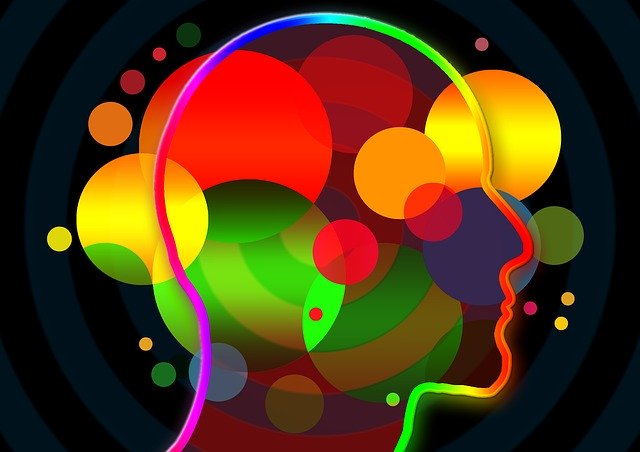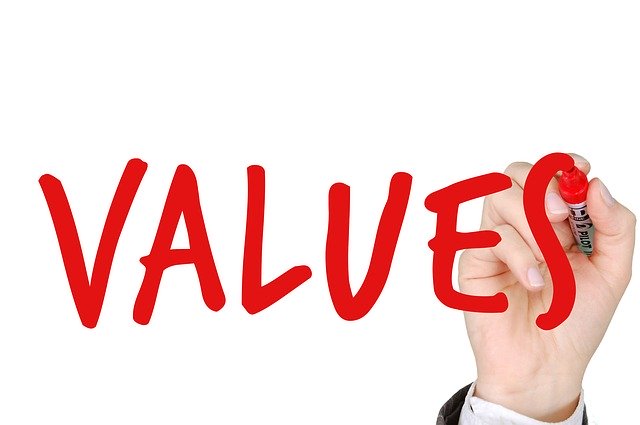Tag: Mindfulness
The Two-Step Anger: Video!
ACT Matrix for Anger
Successful But Unsatisfied
by Nathan Chua
Do you sometimes get that gnawing sense that you seem to have all the trappings of a happy and successful life, but feel an empty void inside nonetheless? Have you felt that life has hit a ceiling and you’d never get to a point where you have reached your full potential? Does it seem like you have made very logical decisions in your life and have come to a point where there is nothing more you can do? Have you gotten congratulatory messages from people that were important to you, but somehow feel like you have done this not out of your own wishes, but only to earn the respect and regard of those around you?
This is the last of a series of articles about Relational Frame Theory or RFT. The phenomenon described above is called reaching an adaptive peak in RFT terms. Some of us may have had this experience in our personal journeys through large chunks of our time. Here are some examples of how this might manifest in your life:
- You’ve gained a lifestyle level that feels comfortable but nonetheless leaves you unfulfilled.
- You’ve been living with an abusive partner who has nonetheless given you the comforts that you want for yourself and your kids.
- You’ve performed well in your work but also had to ingest chemical enhancers for many years.
If you find yourself in these situations, then maybe you are reaching high points in your life with the accolades that you receive, but still feel like you have not gone toward who or what you want to be.
Here is a direct quote from the book, “Mastering the Clinical Conversation,” by Hayes, Villatte, and Villatte, containing questions you might want to ask yourself and see if they can motivate you to move in a different direction:
- “As you’ve focused more on that goal, do you have a sense you’ve put your life on hold? Like life itself can start after this goal is achieved?”
- “It seems that it has had some payoff—some benefit. The question is, is that payoff worth all this energy invested in it?”
- “If you back up and look broadly, is this the kind of life you wanted to live? Are there any things you deeply care about that you have pushed to the side or put on the shelf?”
If you have heard some stories about people getting to a level of success in their lives and they suddenly surprise you about a sudden move to another career, this is what you might have witnessed. If you are like me, we can sometimes get caught up in achieving goals and forget what qualities we want to live.
Here is a question I would like to ask you and see if this strikes a chord with you: How old is this thought that you need to pursue these outward signs of success? Maybe you came from a difficult past as a child. Your family could barely make enough to pay the monthly mortgage or rent. Have you gone away from some of your deeply held dreams in the pursuit of acknowledgement and material security? If your answer is yes, then you might have hit an adaptive peak or a ceiling in your life. It is understandable because these successes do pay off in the short term.
Your next step would be to examine yourself and see what it is that makes you tick. When do you have a sense that life is moving in the right direction? If you sense that being a creative artist or a dutiful teacher is what you want to be, take small steps in that direction. Find something creative or helpful to kids that you can do within your current setup. Experiment if this works for you and see where it takes you, because you’ll never know what life awaits you on the other side.
How humor can save your relationship
by Nathan Chua
We are funny creatures, I have heard Dr. Steven Hayes say in one of his interviews. In the approach that I use for my couples, there is a component that endeavors to help couples reach a level of objectivity especially with regard to their differences. These differences are part of what they bring into the relationship given their histories both from within and outside the relationship.
To illustrate this, let me use an example that is quite a common issue among many couples. A fairly common difference that couples experience is their issues about time and patience in certain contexts. One might be slower than the other. Your partner may be patient in certain circumstances while not so much in others. This may or may not change in your partner. They can be patient as a lamb while waiting for you at the salon but not as patient when waiting at the parking lot. The cases I see mostly have very short fuses when it comes to these enduring differences. It is quite usual that I see couples who complain about major fights and when asked to describe them, would regularly come up with a realization of how trivial the subject of the conversation was to begin with.
Here are a couple of ways you can better cope with such differences. Let’s use the example we just used about waiting. If your partner does not like waiting at the parking lot, then there must be something about that context that makes it problematic for them. See if you can understand what’s behind it. Maybe they are very prompt most of the time and having them wait at a parking lot conjures up some thoughts that make them more anxious. Something they might have learned in childhood or from a previous relationship. You can also recall how much this promptness has made you come to like them in your earlier interactions. As I often share with my clients, if we have time during the session, can you recall what made you like your partner the first time you met? Often, couples will come to see that what is now a sticky issue between them, was part of what initially made them attracted to each other. Qualities that endear you to one another may turn out to be a double-edged sword. The promptness that you came to like from your partner can have impatience on its flipside.
The second tip I have for you today is how to deal with this problem and is actually the topic of this article. Humor! First of all, you have to be aware and mindful of the situations where potential conflict on this issue may arise. In other words, have some foresight. Knowing fully well that your partner can be impatient in such situations, find a way to take that scowl on your partner’s face more lightly. A good example is saying, “Oh I’m so sorry I was five seconds late. I promise to keep it at four seconds next time. I know four is okay, but five is a bit much. My bad!” Of course, say it with the matching facial expression and tone. I hope though that you have a modicum of comedic timing. Finally, please time it when you’re indeed five seconds late!
If you have been to a wedding anniversary celebration a few times, you might notice some of the ways couples cope with their enduring differences and sensitivities. It’s a mixed bag of emotions. You might have seen some tears welling up around the couple’s eyes as they face each other to renew their vows, even as they come up with funny experiences they’ve had in the past about the trivial things they fight about. Remember the proverbial toothpaste and toilet habits? Why? Because that’s what life and relationships are all about. It’s hard work but at the same time as funny and rewarding as they can be.
Remember, coming to couples therapy is limited to an hour or so of work every week. It will not drastically change who you are as individuals. Maybe you can recall some widows or widowers you have visited after the demise of their partners. They would cry and laugh throughout the wake. Laugh because of those treasured moments of laughter that their differences provided. It was hard and came from having years of practice and wisdom, that couples have come to accept and love in each other with a bit of humor, of course.
Do you need counseling?
Do you need counseling for depression, anxiety, trauma, relationship (marriage, family) problems, insomnia, anger management problems, infidelity, teen parenting issues, grief processing, addiction, procrastination, work performance, and even weight issues?
We are here to provide you with evidence-based approaches that are backed by reliable and valid scientific research!
We provide both in person and online video counseling for your convenience.
Please text (preferred) or call:
Mobile Number: +63 917 886 5433 (LIFE)
Available also on Viber and WhatsApp!
(The best option is to message this number through Viber or WhatsApp and we will gladly call you back or reply!)
You can also call our booking hotline!
Booking Hotline: +632 8396 6007
The booking hotline is available 24/7!
Email:
Connect with us through Facebook, follow us through Spotify and YouTube.
Our offices are located in Quezon City, Metro Manila, Philippines.
CMS Clinic
2nd Floor Back to the Bible Building
135 West Avenue, Quezon City, Metro Manila, Philippines
and
M Place South Triangle
8004 Mother Ignacia Avenue, Quezon City, Metro Manila, Philippines

Nathaniel Chua is a member of an international organization called the Association for Contextual Behavioral Science (ACBS). He became chair of the Diversity, Equity, and Inclusion Special Interest Group (DEI-SIG) of ACBS; the first Non-North American to do so.

Nathaniel Chua has a Master’s Degree in Counseling and continues to learn more of the most cutting-edge approaches to working with the human condition.
Below is Nathaniel Chua’s first virtual talk held on November 17, 2023 in front of an international group of therapists from Low or Middle Income Countries (LMIC). He is the first from the Philippines to do this:
What is One Life Only Counseling about?
- You can be assured that your information with be kept completely confidential.
- You will be respected regardless of your religion, gender preference, ethnicity, economic status, and even your personal lifestyle and values. We are LGBTQIA+ friendly!
- Your counselor will not impose their values and beliefs on you.
- We use a scientific model of counseling that has precision, depth, and scope. Below are bullet points to let you understand better what we mean by this:
- By precision we mean that our approach to counseling tells you how these mechanisms of change work. It is not enough to say that a sense of self-awareness is what creates changes in people’s behavior. Our approach tells us how self-awareness works as one step within a set of processes that can lead to lasting change.
- Depth means the approach we use does not conflict with other theories and models of therapy. In fact, many other approaches can be used as forms of treatment towards greater psychological flexibility. Our approach for instance does not conflict with findings in the area of attachment theory, gestalt therapy, psychodynamic therapy to just raise a few examples. It cuts across other levels of analyses.
- Finally, by scope we mean that our approach comes from the discovery of the smallest set of processes that cuts across multiple mental health concerns from anxiety and depression to personality disorders to psychosis, etc. It is a transdiagnostic approach that seeks to understand what many of the symptoms or syndromes come down to, so these processes can be targeted to address many, if not all of the disorders listed in different diagnostic systems.
- We are also probably the only counseling service in the Philippines that follows a certain philosophy of science with certain a priori assumptions about human nature. With this in mind, we offer a holistic consistent approach to life’s challenges that is a-ontological, monistic, and pragmatic.
- Furthermore, ineffective behaviors are addressed by their classes and functions, therefore making our model of therapy parsimonious and much easier to apply to daily living. Most of our clients are empowered to use the skills they learn in therapy to apply to a multitude of challenging situations without having to rush to a therapist to address specific concerns. If you remember Einstein, everything can be explained by one simple equation, E = mc squared! In other words, we do our best to be ACT-Consistent or as some other experts would call it, we practice, ACT Fidelity!
The approach we use is also one that is endorsed by the World Health Organization as an effective psychological tool for coping with any kind of life crises! It can be described as a kind of psychological vaccine that has been found to be effective in improving and promoting mental resilience in the face of many, if not all kinds of life challenges.
Here’s a paraphrase from Dr. Steven C. Hayes in my interview with him on April 5th, 2022:
“Here’s what the World Health Organization, the best public health and scientific group in the world says about this protocol, this extensively tested protocol is helpful for anyone who is stressed, for any reason, in any circumstance.”
Since 2019, we have been very excited to offer this type of a radically different approach to therapy that is not just about relieving symptoms, but also about helping people towards creating lives imbued with meaning and purpose.
Here’s a video about what makes One Life Only Counseling Services different:
You can read the written version of this video through this link: https://www.onelifeonly.net/about/what-makes-one-life-only-counseling-services-different/
Here is a recent interview for an article on Philstar Life featuring Nathaniel Chua and a legal practitioner about marital sexual consent:
https://philstarlife.com/news-and-views/928796-consent-rape-marriage-explainer
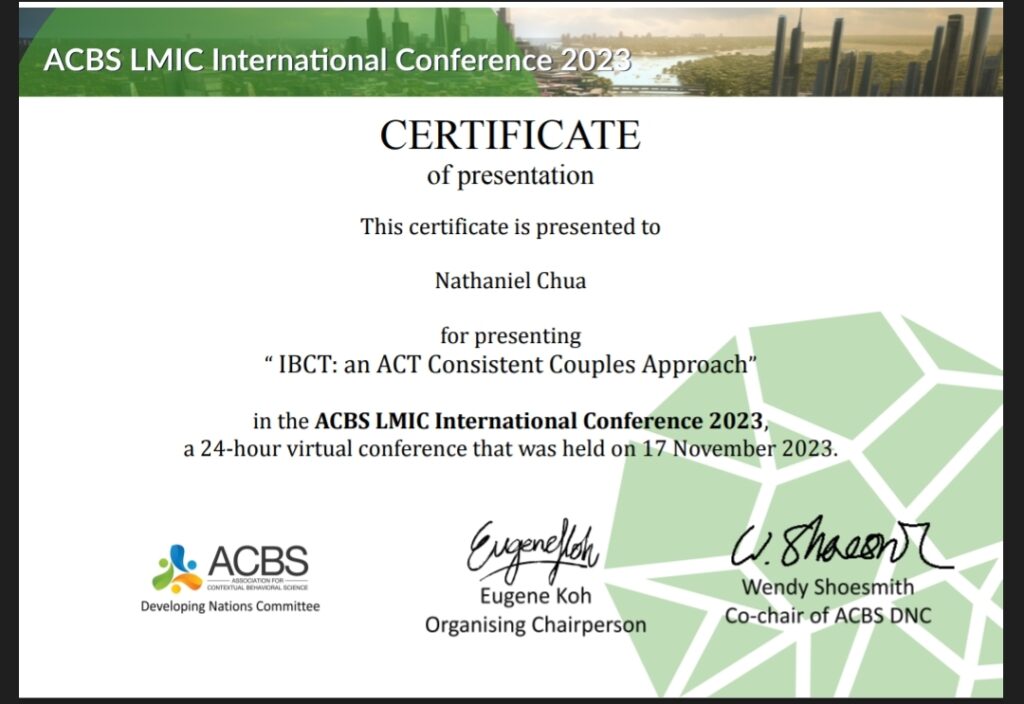

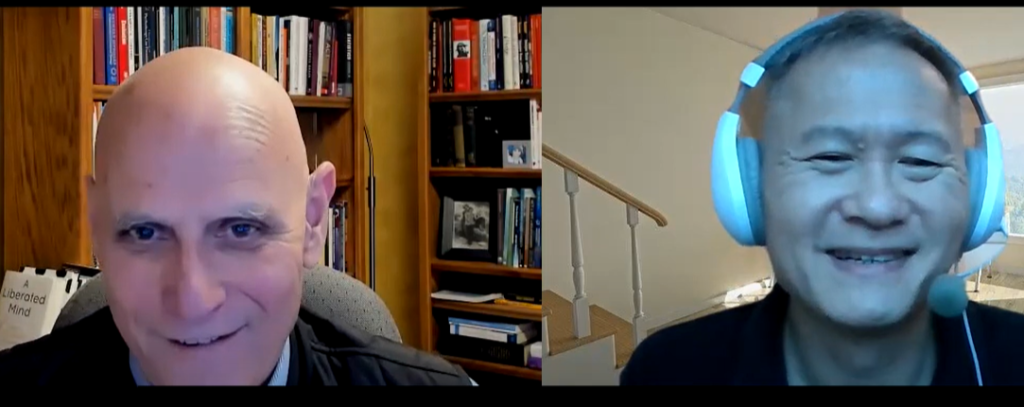
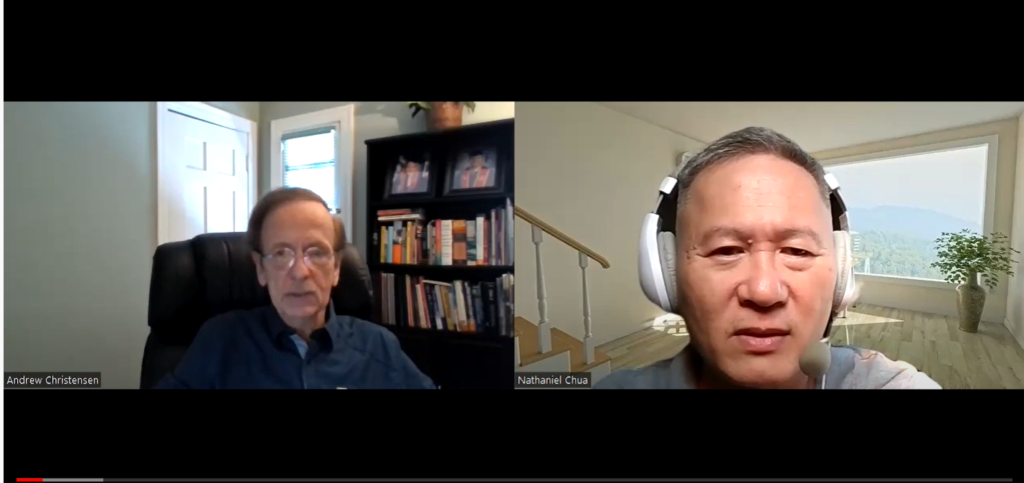


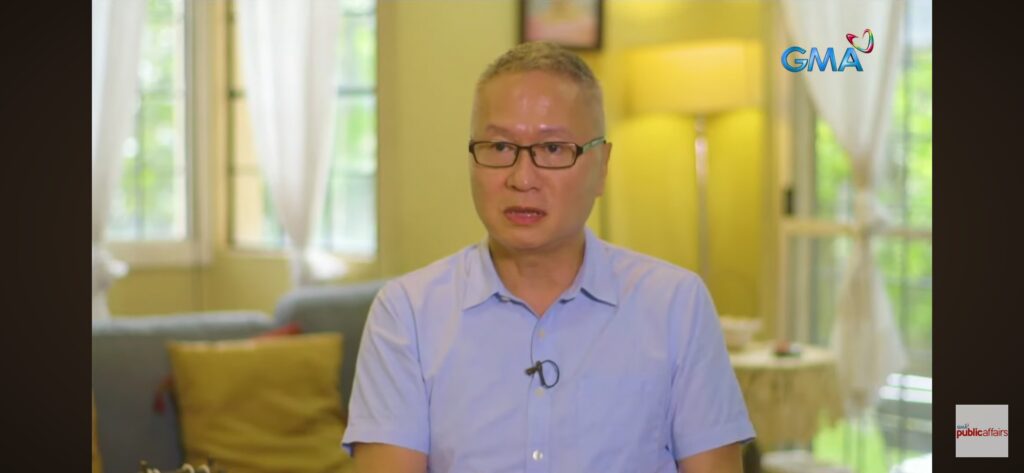
Here a video of Nathan Chua’s appearance on a “Dapat Alam Mo” Episode:
Here’s a solo interview of Nathan Chua with an ACT Matrix Expert and Counselor from the United States, Jacob Martinez:
Interviews with the experts:
Here are two interviews with the two experts that have had a huge impact on my work in recent years. They are with Dr. Steven Hayes and Dr. Andrew Christensen. Here are the videos:
Sunset Mode of Mind
by Nathan Chua
Happiness, contentment, gratitude, a look on the bright side. These are just some of the terms that we throw around a lot like an old ad slogan, but find eternally elusive.
I remember a former philosophy professor write this on the board once, “Humans are insatiable beings.” I have pondered on this truth for so long but have long wondered what the reason for this is. I am now beginning to see the light at the end of the tunnel in my long search for an explanation. Maybe science has found the answer, the behavioral sciences that is.
As far as this area of study is concerned, the culprit is really our human minds. Don’t get me wrong. I am not here to say how stupid our minds can get. In reality, our minds are wonderful! Without them we would not be where we are now as a species. We’d be subject to what other species experience on a daily basis that we can only imagine in movies which depict our prehistoric existence.
Pardon my writing nowadays as I adjust to talking more like a scientist than before when humanistic language came very easily to me. So help me out here, I am struggling trying to get a more scientific message across. Nonetheless, it is my hope that my blog remains as inspiring to you as it is for me to write my thoughts and share them with you, my visitors and subscribers.
I digress!
So here’s what our minds are very good at doing. Our minds are judgmental machines. They can churn out all kinds of criticisms anytime, anywhere. You can try this at home. Pick any object in your room wherever you may be (you can even be at a friend’s house, but just do this quietly in your head for your sake and your friendship’s!). Now try to see everything that’s wrong with it. Go ahead, try it. When you’re done, do it twice more on two different objects you see in the room.
If you’re like most everyone else, you would probably notice that your mind can really do a great job of this. It gets better as you move from one object to another. Do you see now what I am driving at? That’s your friend Mind’s forte!
Ever noticed how some of the most successful, famous, and wildly attractive people in the world can’t seem to get to a point where they can say, “Hey, this is great! I am happy where I am at!” You would have probably noticed that in yourself too. Look back about five years ago and think of the things you have now that you wished you had then. Remember how unsatisfied you were with what you had and where you were at? If you have been losing some stuff you used to enjoy, then it becomes all the more easier to let your mind go and tell you how much more stuff you still need.
That in a nutshell is what our minds do. It’s natural and it also is the secret to why humans dominate the earth. So don’t worry or don’t fret if you feel like a selfish person for thinking that you don’t have enough. It is your mind, mind you, that’s doing it for you. It thinks it is doing you a service by keeping you thinking about what you could be missing or what could go wrong when you’re missing what you’re missing.
But what you can learn here that your mind cannot get, is that you are a human being that is capable of noticing what your mind is doing. All those judgmental critical thoughts of who you are and what you’ve accomplished are just part of the deal of being a human with a brain. The key here is to know when it’s happening and make a pivot or shift towards what life has to offer in the moment. For this moment is all we really have. Neither can we change the past nor control our future. It is this moment that we can change and we can control!
It is that mode of mind that tells you you are watching the sun go down, and you look with wonder and surprise at how wonderful it can be. You know, that sunset mode of mind, like the title of this blogpost? I betcha you can’t appreciate the sunset and do the exercise we just did in this post! I don’t think so! For who wants to see the sunset and figure out what’s wrong with it? Not me, and I guess neither do you.
And guess what, science has come full circle to an old eastern tradition of being mindful. The answer was found in the future, in the form of science that has gone to the past to find the answer!
Mindfulness gets us into that sunset mode of mind…everyday! Do it while you’re brushing your teeth or walking around your neighborhood…and see how great it is to be alive just by being more present, more conscious, and more aware!
Until the next (more scientific) blogpost. See ya!
Mind Rules
by Nathan Chua
Don’t touch that! Don’t go there or you’ll hurt yourself! These are just some of the rules that anyone who grows old enough will learn perhaps during the early childhood stages. Such rules are important to ensure our safety and survival. It is precisely this capability that allows us to not always have to rely on our experience to know that something can threaten our physical safety. This has made us as a species such a success. In fact, so successful that we dominate the planet! Ever wondered why such helpless beings as we, with no enlarged fangs or sharp claws, can keep menacing predators away? We have built cities to surround us and keep us away from such threats. Otherwise we’d be dinner for some of them!
These rules however, only work when we are dealing with computer problems, external threats of a physical nature, and when we want to fix a leak in the house. Our minds are pretty useful when it comes to such problems. Unfortunately, our minds are also unable to discern when these rules are handy, and when they are less helpful or even unhelpful. In ACT (Acceptance and Commitment Therapy) linggo we call this phenomenon fusion. It is when we fuse with our thoughts that we run into trouble. Fusing means we either fight away these thoughts or we follow what these thoughts say we should do.
In the first nine years of working in this field, I can see the parallels between this perspective and my work regarding emotions. We need to be able to feel our emotions because they can serve as a guide for better living. From a cognitive behavioral standpoint, it gives us another angle from which to view such phenomena. Why do we explode in anger? Or shrink our lives into depression and anxiety? Where have we learned this strategy that the best way to live our lives is to shirk our unpleasant emotions and grab on to the pleasant ones. The rule states that emotions are bad for your health; get rid of bad feelings.
Here are some ways that we fuse with our thoughts about emotions. We fuse with the idea that some emotions are bad and that they need to be eradicated. Feeling good is not a valued outcome in life. There is certainly nothing wrong with wanting to feel good, but our emotions shift constantly throughout the day. Having that feel good target in our lives can only lead to one frustration over another.
And because we have these evaluations about our feelings, we also derive a new rule that tells us that feelings can become causes of our behavior. As children, it was quite normal for parents to believe that being able to predict their child’s feelings meant having more control of the child’s behavior. They would not want the child to be angry because anger normally leads to physical altercations.
Sadly the rule that some feelings are bad or that some feelings can cause us to do something bad takes its roots from here. The results of such rule-based decisions about our behavior can be constricting to life. Here are some examples:
- I need to feel confident before I can mingle with the people in this party.
- I can’t exercise if I feel lazy.
- I feel depressed so I have to go get some comfort food.
Dr. Russ Harris has a great example of how we can actually see that these rules aren’t true, and even if they were true, they’re not helping us live the lives we are aiming for. If someone pointed a gun at you and told you that you should not feel anxious, how successful do you think you may be? But if someone did the same thing to you and told you to sing and dance while a gun is pointed at your head, you’d probably be more successful.
So next time your mind gives you these thoughts that somehow you should get rid of “bad” feelings first before you can get on with your life, stop for a moment and see how helpful or unhelpful this thought is. Are your feelings stopping you from applying for that promotion? Are your feelings stopping you from calling that person you want to date? Are your feelings telling you that you’re a loser when it comes to losing weight?
The key here is to learn how to handle such difficult feelings that come with life’s challenges, more effectively. We normally do great when things are going well in our lives. It is when we encounter the harsh realities of life that living our lives the way we want to, becomes a challenge.
Letting Go!
by Nathan Chua
It’s become a buzzword nowadays. Let go! And be free! However, what does letting go really mean? Where is the wisdom in this? Does it mean that we should just throw up our hands in surrender? Submit to whatever life throws our way? Does it mean just going with the flow and not pursuing what we want?
In ACT or Acceptance and Commitment Therapy, a better life is one where the process is itself, the outcome. Outcomes can be very unpredictable. We may choose to develop a romantic relationship with someone but end up being rejected. We can burn the midnight oil and yet fail in a job application, a promotion, or an important exam.
The first step to letting go is to understand what we can and cannot control. For example, an angry spouse, or a recalcitrant teenaged child with the accompanying unpleasant thoughts and feelings that these important relationships bring, are hard to control. As our focus moves towards controlling our feelings and thoughts and the significant people in our lives, many of us eventually discover how far we have gone away from the person we had always wanted to be. Some of us may have had experiences of these rude awakenings. I know I have!
Letting go means that we can drop the struggle with things that are outside of our control: our own thoughts and feelings, circumstances, and other people. A popular metaphor is the tug of war that happens in our heads. We are constantly drawn towards fighting this war between how we want to be and how we don’t want to be. It feels like an angel and a devil taking up space inside of us, with each one pulling on either side of the rope. We desperately want the angel in us to win this war! We get trapped in this perpetual struggle, unaware about the only way we can end this war within, which turns out to be simply dropping the rope, or dropping the struggle, or letting go of the struggle!
The Chinese Finger Trap provides us with an excellent metaphor of letting go:
So in the psychological sense, letting go is about letting go of the struggle with our own thoughts and feelings that come with what life brings to the table for us. Let life be as it is and treat it with a sense of wonder.
Allow these unpleasant thoughts and feelings to go through you and start to choose what actions you would like to take in dedication to your lifelong values. Values are shown by the choices you make that bring you to what you wish to stand for in any given moment. Live according to what is in your control and let go of your struggles with pain, in order to find out how rich and meaningful life can be, even with all of its pains.
Values vs. Virtues: What’s the difference?
by Nathan Chua
Have you ever felt like an outcast where people seem to have their morals in place and you have not? Do you sometimes feel like a misfit in a deeply religious group? Everyone around you seems sure of what is judged to be right or wrong, good or bad, and you are left out not knowing why you feel restless about such strongly held beliefs.
The good news is, you are not alone. How many of us have felt like we held certain values that go against what is commonly accepted as correct and acceptable to the culture and society? Many!
The key here lies in how we understand the terms that we use. We often think that there must be something wrong with our values since they don’t jibe with what is held out to be correct by society. I am not saying that I have the official definition of the terms I will be using here. This post is only a means to help you, my dear readers, find a place of comfort where your values can find legitimacy no matter how outlandish you think they might be.
Let me use a couple of terms that a foremost expert in Acceptance and Commitment Therapy uses to distinguish two words that are normally taken to mean the same: values and virtues.
A value is something that can be summed up in one word. If it needs to be said in more than just one word, then it turns into a rule or a virtue as we are using it here. One can hold being loving, caring, compassionate, accepting, assertive, etc as a value. Once it turns into, “I have to be loving all the time,” then it becomes a rule. Values are meant to be held lightly and as a kind of being in every moment, but nonetheless, can be pursued determinedly.
Here’s a metaphor to give you an idea what a value is. If you ever liked mountain climbing, you would know that your goal of reaching the top is separate from the process of reaching it. You climb a mountain with the goal of reaching the top, but the goal is not just about reaching the top but to experience the process of reaching the top. In other words, you may or may not reach the top, as mountain climbing can be a rather risky activity, but it doesn’t matter as much as simply climbing the mountain. If you hold on too much to the goal of reaching the top to gain a sense of accomplishment or belonging, then you lose the value of experiencing the journey itself or the activity of mountain climbing.
Virtues on the other hand, sound more like goals or rules to follow. Again, I am not talking here about a dictionary definition. This is about distinguishing two ideas to help us understand how values-directed and virtues-directed living can be distinguished from one another. Virtues have a sense of conformity in them. It can come in the form of a statement like, “I should be nice, otherwise people won’t like me.”
So here is how it works in our daily experiences, a value may not be accepted as a virtue in certain cultures. For example, you may have the value of being assertive, but the culture may not see that as a virtue. You and I can run into some conflicts with these types of long-held beliefs about what is acceptable or not.
I am quite sure that you have been in some rather difficult situations before wherein you had this feeling that you were doing right by your own conscience, but seem to be unwelcomed by many. Fear not! Anything that we hold as important will come with the pain of not finding it manifested in our own lives as well as the others around us or in the larger community even. If we care about equality of opportunity, we will find pain in seeing ourselves and others that are not given such opportunities. When we care about life, we will find death fearful. When we care about friendships, we will feel anxious and awkward in social situations. When we care about people who have disabilities, we will care about accessibility of public places.
So take heart my friends! For anything that grieves you from the pain of past experiences, you will find something beautiful inside you that you may have failed to see. You may care about the rights of oppressed groups because a part of your history tells you that there is a person there behind your eyeballs that saw that oppression in the past! For any kind of past sufferings you have experienced, you will find a gift. And that gift may very well be love, which in the end sums up much, or even all of what we’d like to live for anyway.



